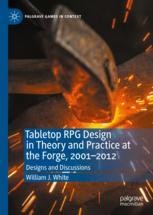I am really enjoying this thread
But
I played 4e, and ran a bit of it (Scales of War for my kids)... And then started to shift my attention to Dungeon World et al when tney came out... And I feel like what I read in the 4e PHB and DMG (tbh, like many, I only read the DMG for the magic items) doesn't exactly support this play.
I know I already asked about the Narrativist background text; but now I'd like to ask what 4e texts support this style of play? Hopefully they are among the texts I already have. Sadly I don't have any of the Essentials books (and probably won't seek those out...)
Well, think of a skill challenge as an encounter-level intent-focused resolution mechanism. First of all WITHIN the framework of an SC things work quite well in a Story Now kind of format, the PCs do something, someone makes a skill check, the story changes somehow, a success/failure/something gets tallied, and then the GM repeats the loop, describing any new/changed circumstance, etc. At the end you have either total success, success with some degree of complication/cost, or outright failure. I consider this whole thing to be narrativist at heart, with its 'try to say yes and roll the dice' structure, etc.
Beyond that, the characters themselves, naturally, have a pretty rich set of descriptors. I mean, you COULD say that about 3.x characters as well, but the 4e ones seem to be cleaner and better focused, and all of them are on a pretty equal footing in terms of narrative potency. You have keywords, which both the players and GM can use to associate things or key off of to drive situations, as well as all the feats, powers, rituals, class, race, theme, background, PP, ED, etc. Every one of those is tied into the overall lore, the framework of cosmic order and cosmic disorder that sits in the background and lets you throw up new story elements on the fly, and tie them to the characters very easily.
And the game is transparent. You know how encounters are constructed, you know what items are available and get to at least suggest how they will be factored in as a player. You can, and are encouraged to, author your own quests outright as a player. It is very easy to move narrative authority around in this game. The heavily scene-based architecture of play, with its 'skip to the fun part' ethos has a very PbtA kind of feel to it.
So, in terms of specific words that say "do this narrativist thing, this is a narrativist game" 4e doesn't really come out in so many words. There are bits here and there, but its not a game that is pushing an agenda, its just a game that plays exceedingly well when you look at it from a certain story now/narrativist point of view. And I cannot believe that was an accident. Its a very deliberate game in terms of designing to its goals, it didn't 'just happen' to work out this way. I'm also sure it was intended to work reasonably well as a neo-trad or trad sort of game as well, with the possibility for players to assume varying degrees of authority for different parts of what happens at the table. I mean, you can pre-plot entire story arcs if you want, along with exactly where the PCs builds will end up, etc. Or you can simply sit down at the table with zero myth and zero prep and 'see what happens' with total table transparency.


